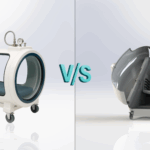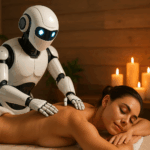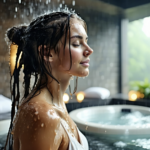We changed from candles, to lamps, to light bulbs… but we stagnated at conventional medicines. Is there a reason for this irrational human behavior?
As humans we constantly have the desire to improve ourselves and our circumstances. Maybe on different levels, some in their spirituality, some in their human existence, but the bottom line is, we all seek improvement. As technology advances, so does our quality of life, or that is the logic behind it. To my astonishment a few months back I realized something, something that shook my fundamental beliefs.
“… preventative measures are more effective than reactive ones…” |
In the medical field pills, tablets, syrups and powders dominated the scene, and it worked. Just as the candle worked in it’s time, and still does when all else fails. But why did we improve the candle, upgraded the improvement and are still seeking upgrades and alternatives for that, while we still so blindly rely on the old way of medicine? Nothing is being taken away from our trusted doctors and the men in white coats that developed these healing powers. Doctors and their medicines saved countless of lives, just as the lamp lit up countless of dark homes.
What I realized was the effectiveness of these conventional methods of healing. Our world changed over the decades where the pill was king, but the pill didn’t keep up. It lost its edge. You can see it in your friends’ and families’ health. The world is more polluted, more dangerous and chemicals are being spilled into our water system. The change from a flame to provide light to electricity is a big change, and that’s where we are today in the medical field. We are now nearing the brink where we must change our mindset, that electricity is more effective than fire to provide light, that preventative measures are more effective than reactive ones to provide continuous health.
People see health in a solitude state. It’s better if you see it in the same context as starting with a family. You incorporate everything into it, your career path, money, housing, time spent on work and away from home, etc. It’s the same with health; it’s a lifestyle where you need to take everything into consideration. Your diet – this includes the quality of food and drink intake, work, exercising, resting, laughing, family, etc. Only then will you achieve a state of wellness.
The new era in health care won’t be as expensive; it will be enjoyable because happy people live longer. “Happiness does not heal, but happiness protects against falling ill,” (Veenhoven 2008).
We urge the world to find out for themselves if there is truth in our beliefs, or are we just victims of propaganda? Educate yourself by researching alternatives, keep an open mind to new discoveries and share your findings with friends and family.
SALVAGENTE (which means life preserver) wellness clinics came to life out of the need for alternative, preventative measures of healthcare. SALVAGENTE researches the alternative health products on the market. When a product or service which fulfills the criteria is identified, it is structured, packaged, and promoted to the public. Some of the criteria include:
– Alternatives to the current health offerings
– Affordable for the broad public
– Excellent results in a cost-effective manner
– Natural and eco-friendly
To live in a ‘wellness state’, various current problems must first be addressed. Our access to clean water: whether we drink the water or rinse our food with it. (Dirty water used on fruit, vegetables (Kahn, 2008)) The air we breathe, how pure it is, especially in cities. How passive smoking influence us, whether we are smokers or not.
SALVAGENTE addresses these problems by providing the solutions one needs to rectify the situation. The company is a firm believer in balancing all the areas of one’s health, and where a short-fall occurs SALVAGENTE will be there to bring your life back into harmony.
________________________________________________________
REFERENCES:
Veenhoven, R. 2008. Happy people live longer. Health 24.com, 14 August 2008.
[Online]. Available:
http://www.health24.com/news/General_health/1-915,47568.asp
[Accessed 14 August 2008].
Kahn, T. 2008. Dirty water used on fruit, vegetables. Business Day, 18 August 2008. [Online]. Available:
http://www.businessday.co.za/articles/topstories.aspx?ID=BD4A824558
[Accessed 18 August 2008].






Leave a Reply